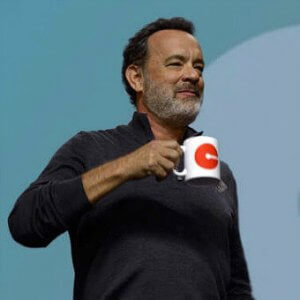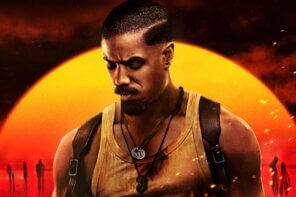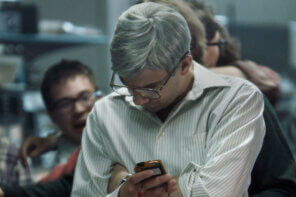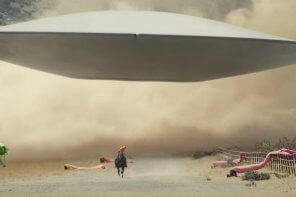If you are reading this review on this site, you are already more or less technologically adept. And like most of us you very likely go to the “information superhighway” for entertainment, education, and news. And you probably also use the internet to make the business and file-keeping of your life easier. To do that we give up personal information and, inevitably, little bits of our privacy. The Circle imagines a time not far off where someone develops “TruYou” — a “Unified Operating System” which combines for people (from the novel) “everything online that had heretofore been separate and sloppy — their payment systems, their various passwords, their email accounts, user names, preferences every last tool and manifestation of their interests.” Of course TruYou would make life easier for all of us (don’t you hate it when you can’t remember that password!). It would, in addition, allow collection of data that would have wonderful applications for the good of society. What could go wrong?
Based on the best-selling, entertaining novel of the same name written by David Eggers (who also wrote the book-to-film “A Hologram for the King”), the movie boasts a great cast and top-grade financial backing. Further, its screenplay is co-authored (along with Eggers) and directed by James Ponsoldt, most recently lauded for the thought-provoking The End of the Tour. Opening just a few weeks after its star, Emma Watson, gained kudos (at least from some) for her portrayal of Belle in the new Beauty and the Beast, the Harry Potter star bears even more of the acting burden in this film. And playing against Patton Oswald (Ratatouille, Magnolia, and numerous TV credits), Eller Coltrane (Boyhood), Karen Gillian (Guardians of the Galaxy 1 & 2, The Big Short), John Boyega (Star Wars: The Force Awakens), Bill Paxton (sadly in, I believe, his last movie role and a minor one at that) and, most of all, Tom Hanks (too many films to mention) there was great hope for this vehicle. What a shame that it crashes and burns.
From Small Town to Big Corp
Starting with the work-a-day life of Mae Holland (Watson), we see her toiling at a utilities company in a small Californian town where she lives with her parents. She feels her years of college have led to nothing but her dead-end job. In desperation she asks her college BFF, Annie (Gillian) to throw her a rescue line. Annie, you see, had the connections, skill, and good luck to become one of the “Gang of 40” who are the decision makers just below the founders of the massive Circle corporation, which developed TruYou.
 The Circle is thought of as the world’s most progressive and fabulous place to work (clearly modeled on Apple and Google). And “Yes”, Annie calls her to tell her she got the “entry” position. Whether her hire is based on her resume’ and interview (“What do you most fear?”… “Unfulfilled potential”) or Annie’s influence is an only briefly troubling thought for Mae — not one which makes her hesitate for one second to grab the opportunity.
The Circle is thought of as the world’s most progressive and fabulous place to work (clearly modeled on Apple and Google). And “Yes”, Annie calls her to tell her she got the “entry” position. Whether her hire is based on her resume’ and interview (“What do you most fear?”… “Unfulfilled potential”) or Annie’s influence is an only briefly troubling thought for Mae — not one which makes her hesitate for one second to grab the opportunity.
From the first day Mae is at the Circle she is awed by everything about it, especially the total immersion into the “Circle” lifestyle — which for all employees is “completely voluntary”… and expected. (Reminding me of Sunday high school football practices.) But fabulous benefits are at Mae’s fingertips just for the asking. Having Annie as an influential friend opens avenues for Mae to climb the hierarchy even more rapidly than she could imagine and very quickly Mae comes to know the three founders of the massive corporation, venerated by their employees as “The Three Wise Men.” These pillars of the high tech giant are the Circle’s smooth public face, Bailey (Hanks), its business genius Stenton (Oswald) and Ty, the mysterious mastermind programmer who is almost never seen, nor lately even heard from.
For the Good of All
Mae is astounded by the wonderful technological advances on which the Circle is working, all with amazing “beneficial” applications, such as never having a child abducted by a pedophile (“insert a chip in each child and you will always know where they are”). Or having children’s educational and reading levels immediately available (record all their school records — and discipline — as part of their TruYou profile available to every teacher, school and prospective employer). Apps could allow those with physical limitations to experience climbing mountain peaks or racing in a vehicle across the desert by everyone sharing their experiences with them. And it might almost completely eliminate crime by having cheap, almost undetectable, on-line “SeeChange” video cameras everywhere.
 The societal benefits would be endless. As Bailey patiently tutors (indoctrinates?) Mae, she follows his prompts to come up with the mantras “Secrets are Lies” followed by “Sharing Is Caring” and finally “Privacy Is Theft.” How would it not be a good thing for there to no longer be secrets, to share everything and to have the understanding that anything you keep from the world is stealing from their ability to learn from your experiences? TruYou could even be used to require that we all vote in national and local elections online (unless we would be willing to give up the ease and utility of the TruYou apps). And not only could we be sure everyone votes, we would have a record of how they vote (for demographic purposes only, of course).
The societal benefits would be endless. As Bailey patiently tutors (indoctrinates?) Mae, she follows his prompts to come up with the mantras “Secrets are Lies” followed by “Sharing Is Caring” and finally “Privacy Is Theft.” How would it not be a good thing for there to no longer be secrets, to share everything and to have the understanding that anything you keep from the world is stealing from their ability to learn from your experiences? TruYou could even be used to require that we all vote in national and local elections online (unless we would be willing to give up the ease and utility of the TruYou apps). And not only could we be sure everyone votes, we would have a record of how they vote (for demographic purposes only, of course).
And finally, there is “transparency.” At Bailey’s fatherly nudging, Mae agrees to have an incredibly small AV transmitter mounted on her to allow the entire world to experience everything that Mae experiences. She will be a missionary to show the world the potential of being “transparent.” Her entire life will become public knowledge to anyone with a high speed Wifi connection, with the only exceptions being her sound (only) which would be compassionately turned off for 3 minute bathroom breaks and lights out from 10 PM to daylight. Mae’s transparency would encourage the spread of this wonderful barrier against evil and corruption to thousands, then millions. (As Bailey asks Mae “Do you behave better or worse when you are being watched?”) Every politician and business leader would be pressured to become transparent and it would eliminate graft and back-room deals. Just ten years (plus) from all human beings potentially being connected to every other human, the people of the world would rise up to demand that all their leaders agree to transparency and we will have achieved a utopian society.
What Went Wrong?
The first third of the movie features Watson and she is a joy to watch, appearing to be the common “man” thrust into an almost idyllic dream of success. When she meets Bailey, he is the compassionate, intelligent father figure for which she has yearned — not like her own father who has multiple sclerosis and is uneducated. She goes back to share her joy with her lower-middle class, technically impaired parents (Glenne Headly and Paxton). She also bumps into her ex-boyfriend Mercer (Coltrane) — who, unlike the novel, is devilishly handsome. Mercer sounds the one negative note to that point, being deeply suspicious about her new employer and information technology in general. Mae feels he is a Luddite and cruelly rejects his concerns.
From that point forward the movie quickly slides downhill. Mae’s common sense melts faster than an ice cube in a lit Weber grill, and she follows Bailey’s every suggestion without hesitation. The roles played by Coltrane and, especially, Boyega are laughably unfulfilled (unlike the novel where they had interesting and balanced roles). Mae’s relationship with Annie unrealistically flips in just a few minutes of screen time. Tom Hanks’ Bailey steadily goes from “dad” to “bad” and you have to seriously question Mae’s intelligence that she has nary a moment of hesitation before she buys into the whole ominous package. But Hanks is masterful with his Steve Jobs reincarnation as he stands with coffee cup in hand, seemingly laid-back and self-effacing, in front of an auditorium filled with adoring employees.
 To a fault, The Circle has no underlying dark secret, no villainous plot other than asking the public to give up our privacy bit by bit — “Knowing is good, knowing everything is better”. Really? Duh. Black Mirror (Netflix) warns us in much more interesting fashion. The Circle possibly shows us how easily that could happen and that works (at least for me) in the 500+ page novel but not in a less than two hour movie that spends far too much time on plot-lines going nowhere. And the last scene of the movie… confusing and, honestly, I laughed out loud in the theater at its absurdity. One of the things I so liked about The End of the Tour (a film I did not fully embrace but still considered a worthwhile endeavor) was the complexity and unpredictability of its characters. None of that here. Why is that, James Ponsoldt?
To a fault, The Circle has no underlying dark secret, no villainous plot other than asking the public to give up our privacy bit by bit — “Knowing is good, knowing everything is better”. Really? Duh. Black Mirror (Netflix) warns us in much more interesting fashion. The Circle possibly shows us how easily that could happen and that works (at least for me) in the 500+ page novel but not in a less than two hour movie that spends far too much time on plot-lines going nowhere. And the last scene of the movie… confusing and, honestly, I laughed out loud in the theater at its absurdity. One of the things I so liked about The End of the Tour (a film I did not fully embrace but still considered a worthwhile endeavor) was the complexity and unpredictability of its characters. None of that here. Why is that, James Ponsoldt?
And the music? Serviceable — but a short clip of a performance by Beck is wasted. And where-oh-where is the hypnotizing do-over of the Hall and Oates “Private Eyes” (yes, that Hall and Oates) that was the best thing about The Circle‘s trailer? It was so perfect (“Private eyes, they’re watching you…”) and nowhere to be heard in the film. If you want to experience it you can listen to the Lenachka arrangement here. I was disappointed to not have its haunting refrain in the film.
Thank God We Are Not Transparent — Really?
What is here for a Christ follower like me? The issue of “transparency” has given me pause to think. None of us want to be fully transparent — even to those we love and trust the most. All of us have our dark corners and most of us have our moments every day where we fail to show the love of Christ. Bailey’s statement that “I am a believer of the perfectibility of people” is both naïve and unbiblical. I would rather follow James Madison’s maxims “The truth is that all men having power ought to be mistrusted” and “Wherever there is interest and power to do wrong, wrong will generally be done.” Not to speak of the Apostle Paul’s oft-spoken warnings in Romans “For all have sinned and fall short of the glory of God” and “I do not understand what I do. For what I want to do I do not do, but what I hate I do.” No we do not want to be “transparent” other than before a loving and forgiving God (beyond all understanding) who has already sent his son to pay for our screw-ups.
Worth the Viewing?
So if you need to be warned that all our wonderful technology has a very dark lining, see this film. But most of us, while not ready to give up our social media toys, are already forewarned of this issue.
I suggest you wait to stream The Circle (where records are being kept of your personal viewing preferences) or rent the DVD (and the DVD’s you rent are being kept in your personal history.) Private eyes… they’re watching you.





